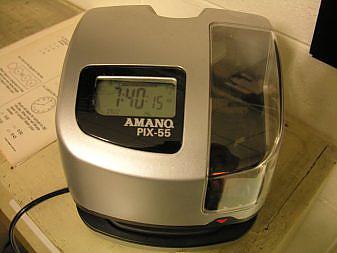Commission, Hands off our right to fair working hours!
Commission, Hands off our right to fair working hours!
Amongst all the news about the euro, and terrorism, things are also happening in Brussels which, though extremely important, are harder to find anything to read about. For example, the European Commission has begun a public consultation about the Working Time Directive, the EU law that means that none of us should work too long hours and that we should receive sufficient holidays. These are rights which people have fought hard for since the nineteenth century. Before these rights were won, tragic conditions meant that workers had hardly any free time, their lives consisting for the most part of working, eating and sleeping. That’s why it’s simply dangerous that the Commission is calling some aspects of these rights into question, referring to ‘social developments’. And it’s for that reason I am asking you to complete the Commission’s online questionnaire on the issue.

If you do fill it in, don’t be fazed by all of the technical terms. To help with these, here’s a brief background explanation of what this is really about:
There may times when the employer wants you to be available at the workplace, or elsewhere, even though there may be no work to be done, as is often the case for people who work in a hospital. There are times when they are supposed to stay at the hospital to be able to quickly intervene in an emergency, but during these times they may rest or get on with other things. Completely against what the employers want, the European Court of Justice (ECJ) has ruled that this time must be included in working hours. The employee is not, after all, really ‘free’. The fact that the Commission is asking questions about this shows what they want to do, which is remove some of that time on call in the workplace from the hours counted as work. We must not accept this, of course.
Sometimes having to work longer than the eight hours which constitutes the normal working day cannot be avoided. Workers have, however, the right to an unbroken rest period of eleven hours. Say you normally work from 9 a.m. to 6 p.m. with an hour for lunch. If due to the circumstances you have to work until midnight, you won’t have enough time to take your eleven hours’ unbroken rest, if the next day you are expected nevertheless to start at nine as usual. Current law specifies that you should not start at 9 a.m., but at 11. This regulation is now in jeopardy: the Commission is proposing instead that compensation could be made later. I’m opposed to this: after your work is done it’s good to rest, and you must have the opportunity to do so.
The ‘reference period’ is also extremely important, and this is how it works: you are not allowed under the current directive to work an average of more than 48 hours per week. But how is that average calculated? As things stand the rule is that it should be reckoned over a period of four months – the reference period. The Commission is now suggesting that this reference period should be extended to a year. This would mean that early in the year you could be working enormously long hours, provided that in, say, the second half of the year, you put in a great deal less time. Inside four months this may be acceptable, but a reference period of a full year is of course far too long.
At the end of the questionnaire there are a number of general questions. These include references to new information technology and the question as to whether working time should not be more flexible. This is potentially fatal: if you work in front of a computer screen, you should not be doing this for too long at a stretch.
I hope you will all use the link above to help to make clear to the Commission that we are not willing to see our rights to decent working hours called into question. There is a great deal at stake.
- See also:
- Dennis de Jong
